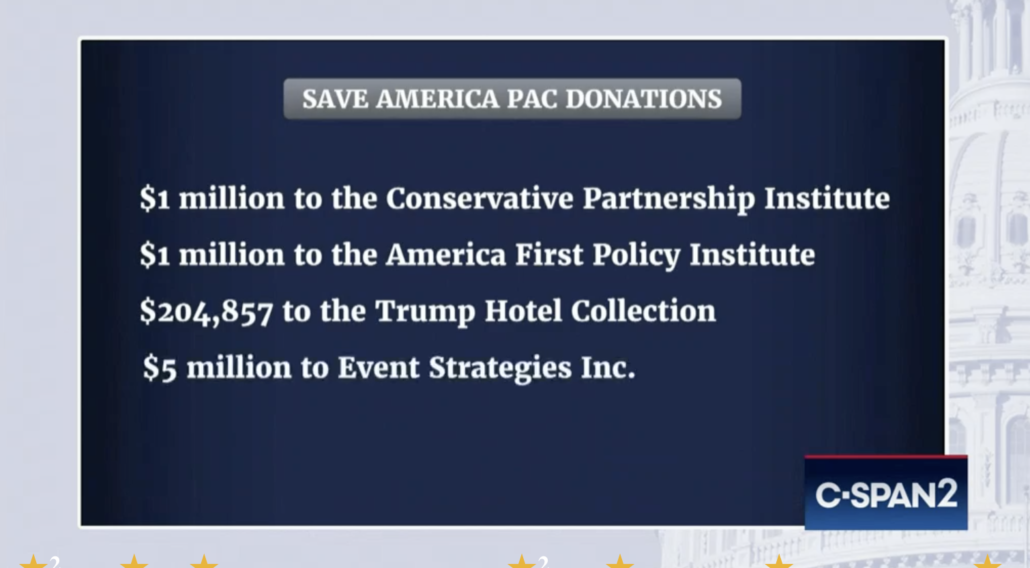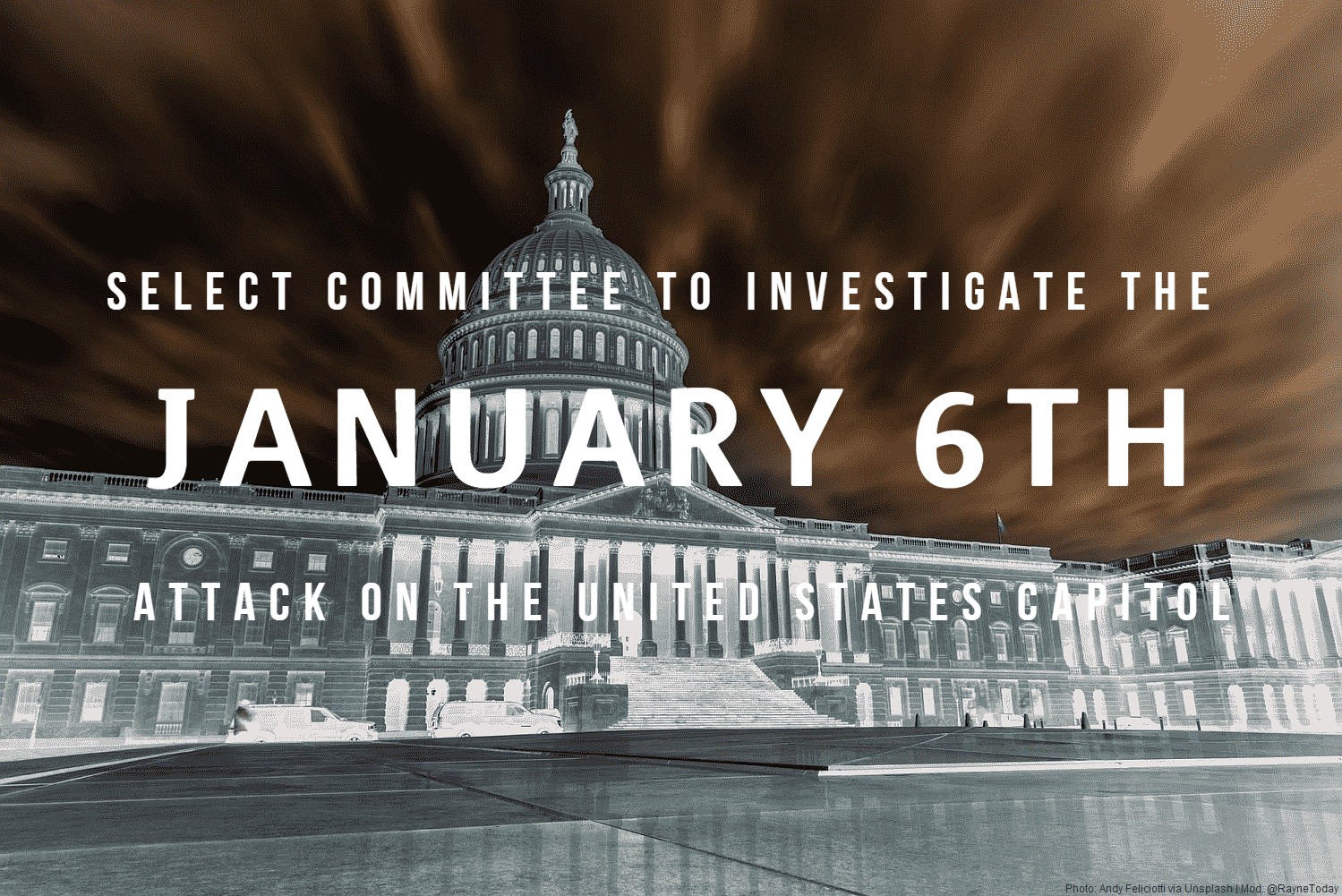Trump is telling a story — a false story — about his loss. The story, by itself, is not enough to overturn his resounding loss, and because of that, a host of people are treating the story-telling as relatively harmless. That’s a mistake, not least because Trump may intend this story-telling to justify other activities, such as a crack-down on people who protest his actions. He may even intend to make this country ungovernable — and in that, he may well succeed. Because of that, every single person who is complicit in telling that story bears direct responsibility for what comes next, including violence and potentially an attempt to thwart the will of voters.
I’d like to look at two kinds of story-telling that are complicit with Trump’s efforts, using this WSJ story, by Rebecca Balhous and Rebecca Davis O’Brien, as an example (though there are a slew of other possible examples).
First, there are Trump’s advisors, many of whom are described as recognizing that Trump’s claims of voter fraud won’t reverse his overwhelming loss.
Trump advisers have grown more vocal in conversations with Mr. Trump in recent days that they don’t see a path to victory, even if his legal efforts meet some success, a White House official said, though some advisers have continued to tell the president he still has a shot. An official said Mr. Trump understands that the fight isn’t winnable but characterized his feelings as: “Let me have the fight.”
One potential strategy discussed by Mr. Trump’s legal team would be attempting to get court orders to delay vote certification in critical states, potentially positioning Republican-controlled state legislatures to appoint pro-Trump electors who would swing the Electoral College in his favor, according to people familiar with the discussions.
It isn’t known how seriously the campaign has considered this idea, one of the people said.
Many of the advisers and lawyers said they doubt the effort would succeed and say it is aimed largely at appeasing Mr. Trump, who believes the election was stolen from him and expects his legal team to keep fighting.
Some of Mr. Trump’s advisers and lawyers said there isn’t an overarching legal theory or coordination behind the campaign’s efforts. The legal battle likely will conclude with Mr. Trump claiming the election was rigged against him and that he fought the outcome, the White House official said.
These people are willing to tell a story — one claiming that Trump’s legal challenges are meant to be serious legal challenges and not theater designed solely for story-telling — just to “appease” Trump. These people are all admitting that they are willing to damage the country just to allow a narcissist to claim he didn’t lose because a majority of the country, even a majority of people in states that make up an Electoral College victory, rejected him, but instead to claim he lost because over half the country did something illegitimate. These people are participating in Trump’s efforts to rebrand the act of casting a vote against Donald Trump as cheating.
No one making those admissions should be given anonymity, because they are willingly doing damage to the country.
Worse still, these anonymous sources are described as not really knowing how far Trump intends to go with the story. If they don’t know how Trump intends to use this effort, then they cannot rule out the possibility that they are telling a story that Trump intends to lay the groundwork for some kind of violent or extralegal effort to refuse to hand over power. Presumably, given that these people recognize how elections work, none of these people would willingly participate in a coup. Except they may be doing just that, by helping Trump tell a story that delegitimizes Joe Biden’s resounding win.
If this fight is not winnable, as these sources acknowledge, then participating in it can only serve to harm the country.
But it’s not just these anonymous sources who are complicit in the damage Trump is doing to this country.
This story treats the outcome of the election as a both-sides issue, one that pits Democrats against Republicans. For example, it notes that “officials in each state” have said there were no problems with the election. But then it only quotes Democrats, and labels each one as a Democrat.
Officials in each state have defended their voting processes as fair and free of major problems. Democrats said they would fight any effort to stop certification of the vote.
[snip]
Michigan Attorney General Dana Nessel, a Democrat, said the Michigan lawsuits were aimed at preventing the state from certifying results in hopes that the Republican Legislature would send Congress electors for Mr. Trump. “We are prepared to combat that,” she said on a conference call Wednesday.
[snip]
A spokeswoman for the office of Pennsylvania Attorney General Josh Shapiro, a Democrat, said Gov. Tom Wolf, a Democrat, certifies the electors selected by the popular vote.
A spokeswoman for Arizona Secretary of State Katie Hobbs, a Democrat, said the office is confident it will certify election results on time. “Arizona’s courts have plenty of experience handling and expeditiously resolving election-related lawsuits within the very strict statutory deadlines,” said spokeswoman Sophia Solis. [my emphasis]
It is, frankly malpractice to treat these claims as a partisan issue, and even bigger negligence to not quote any of the numerous Republicans who have also said the votes conducted in their states were fair, such as Georgia’s Geoff Duncan, or other Republican experts saying the same, such as Ben Ginsberg or Karl Rove.
Truth is not a partisan issue, but Balhous and O’Brien are treating it as such.
This story also treats claims that have been debunked or that are meaningless as credible.
In Michigan, it has offered affidavits from Republican election challengers who say they were harassed, forcibly excluded from absentee ballot-counting facilities and witnessed tampering with scores of ballots.
[snip]
In Pennsylvania, the campaign’s lawsuit contends the state didn’t give observers enough access to ballot counters and gave voters in Democratic leaning counties more opportunities to correct deficiencies in their mail-in ballots.
It would take about ten minutes of reporting to explain how these claims misrepresent the legal guidelines surrounding official poll challengers or exploit Democrats’ far wider use of mail-in voting this year to suggest disparate treatment. There are multiple court transcripts now where Republican lawyers have admitted this.
And yet, instead of doing that reporting, these journalists treat these bogus claims as if there is some dispute about them. There is not. The facts show these claims are without merit, and including the claims without clearly noting that is irresponsible.
Finally, having spent thirty paragraphs treating these election claims as if they are serious, in spite of the overwhelming evidence they are not, the WSJ admits that they are instead intended to accomplish other objectives.
Republican leadership in Congress has supported Mr. Trump’s legal battle. Some advisers see the efforts as a way to keep the Trump base energized ahead of the runoff elections in Georgia in January that will determine control of the Senate.
The suits also offer Republicans a greater platform to draw attention to any potential voting irregularities. And they provide an opportunity for political payback by Mr. Trump, who has long complained that the special counsel investigation into his campaign’s ties to Russia in the 2016 election was a way for his opponents to delegitimize his victory that year.
Responsible reporting would start with this admission. It would make the lead of the story that Republicans are lying about the viability of their challenge but are willing to do so, with all the damage that will do, to score payback because Trump was investigated for crimes he committed. But instead the WSJ buries it in the last lines, hiding their own complicity and that of Republicans they inexcusably grant anonymity where few will ever read it.
The story that Donald Trump is telling is doing tangible harm to our country. If you are complicit in telling that story — whether you are an anonymous enabler or a both-sides reporter — you also are doing tangible harm to this country.




